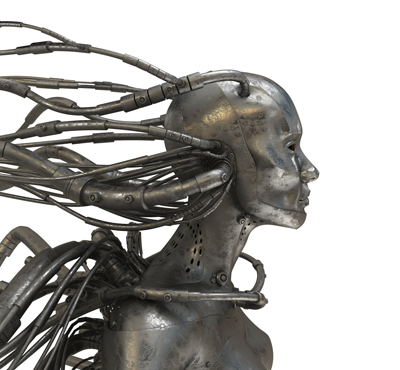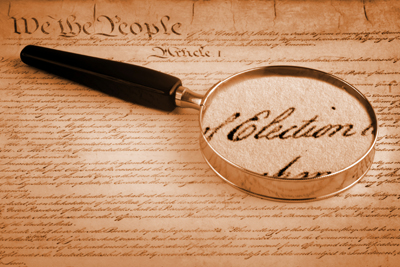
|
The Jewish calendar dates from the biblical date of the world’s—or rather, the universe’s—creation, according to the twelfth-century (AD, in the Western reckoning) Jewish philosopher Maimonides. That’s a pretty important event. For the religious observances of Jews everywhere, the year is now 5781 AM (for Anno Mundi).1
The Islamic calendar dates from the Hijra, the year that Mohammed and his followers left Mecca for Medina to establish their first true community, or ummah. For them, it is now 1420 AH (for Anno Hegirae).
The ancient Romans counted their years from the legendary founding of their city, approximately in the year we would call 753 BC. If we still counted the Roman way, it would now be 2773 AUC (for Ab Urbe Condita). Similarly, the Greeks of approximately the same period took their dating from the first Panhellenic Games held at Olympus in what we would call 776 BC, presumably the first time that all of Greece came together as a people. In that system, it would now be 2796—although the Greeks counted loosely in units of four, the span of years between each set of games, going back to the most recent games or forward to the next set. And the events themselves were suppressed in 394 AD, when the Roman Emperor Theodosius imposed the newly established Christian calendar on the Greeks.
The Chinese calendar was established in the fourteenth century (BC, in Western reckoning) and traced back to the Emperor Huangdi, who is supposed to have worked out the cycle of years in 2637 BC based on astronomical observations of the Sun and Moon. It doesn’t really matter what year it is in China today based on this calendar, other than for religious and festival purposes. The modern Chinese follow the Western calendar.
Western Civilization took the starting date of its calendar from the birth of Christ, a big event for those who had recently converted from their pagan rites to the new religion. And it is now 2020 pretty much around the world, based on the spread of Western trade and business. We used to call this year Anno Domini (from “Year of the Lord”), and any year before the start of the Christian calendar was then “Before Christ.”
Somewhere along the line, probably about fifty years ago, scholars started calling the current years CE (for “Common Era”), because we all use this Western reckoning anyway, and the years from before this start were BCE (for “Before Common Era”). Presumably, scholars of Jewish, Muslim, Chinese, or pagan faiths found it disdainful to identify the date with a Christian reference. So they kept the accounting but changed the words around to be less offensive.
And isn’t that just the ultimate in hypocrisy? Use the Christian calendar but don’t actually acknowledge it. Pfui!
If you want to abandon the Western, Christian tradition, let’s not take the easy path. Here are some alternate datings we might adopt in a totally nonsectarian fashion, basing our counting on something important to today’s crop of irreligious scientists.
We could, for example, celebrate the first use of a printing press with movable type, by Johannes Gutenberg in 1439, which started the revolution in information technology and popular literacy—at least here in the West. Of course, the first thing Gutenberg printed was the Bible, so that’s still kind of a religious holiday.
We might base the calendar on René Descartes and his publication in 1637 of the Discours de la Meéthode, the traditional founding of the Scientific Method. His line of thinking cleared out much of the superstition surrounding natural events and led to our technocratic view of the universe. Or we could recognize Isaac Newton, whose Principia Mathematica in 1687 laid the second brick in the foundations of the scientific revolution, and whose other studies led to our better understanding of gravity, light, and optics.
Or we might celebrate Alfred Einstein’s theories of Special Relativity (1905) and General Relativity (1916), which turned Newton’s gravity, the simultaneously occurring universe, and our understanding of space and time on its head.
Taking up any of these developments as the most important events of the modern world would make our age relatively short: just 581 years for the Information Age, or between 333 and 383 years for the Scientific Age, or only 104 to 115 years for the Relativistic Age.
If you prefer hard mechanical achievements to philosophical personalities, you could base the calendar on James Watt’s technical improvements in 1776 on Thomas Newcomen’s original steam engine of 1712, which kicked off the Transportation Age; on the Manhattan Project’s fission bomb of 1945, which started the Atomic Age; or the first working transistors developed by a team at Bell Labs in 1954, which kicked off the Computer Age—with the help of Alan Turing and the primitive computational devices of the previous decade. Any of those events would give us an even shorter history—most of them putting us still in the Age of Discovery.2
But for now, until the modern era settles down into a quiet, respectable, backward-looking middle age, we’ll just have to muddle along with “Before Christ” and “Anno Domini” and their secular equivalents. And that’s a good thing, because the computers could change their dating systems more easily and a lot faster than any of us humans could learn to handle a new calendar.
1. For now, we will ignore the fact that for some of these reckonings the calendar is based on the lunar cycle of 28 days, and so the year may have more than the 12 months, or the year less than the scientifically measured 365.25 days, to which we all are accustomed. And anyway, Christ wasn’t exactly born on December 25.
2. Think of the development of the first truly portable artificial intelligence and its control of existing computer and automation systems. Think of the time when we will develop the first fusion reactor that puts out more energy than it takes to ignite, which will revolutionize our energy production. This age has a long way to go yet.


